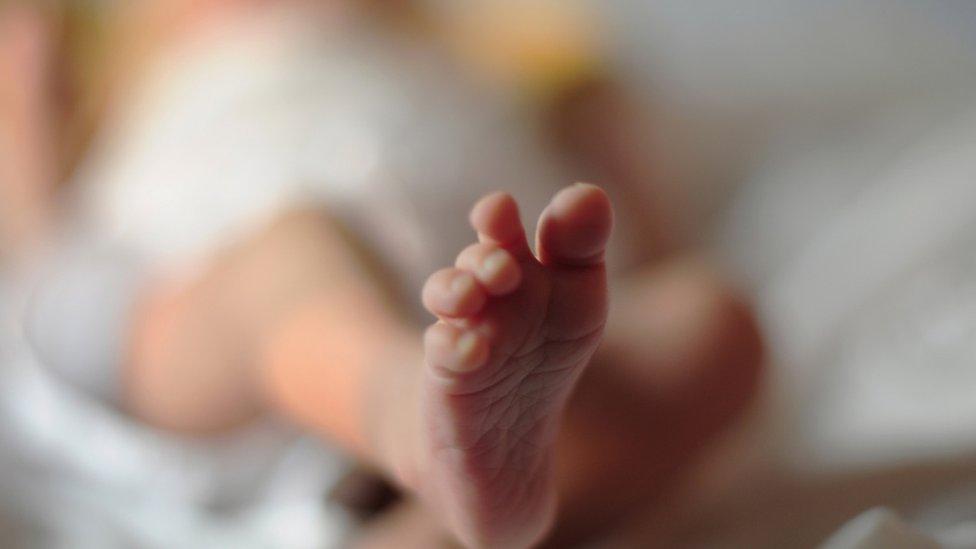Baby death rates increasing among poorest Scots, researchers find
- Published

Some of the poorest outcomes for children were found in cities like Glasgow or Dundee
The rate of baby deaths among the poorest communities in Scotland is rising, according to new research.
The Health Foundation found that while infant mortality was generally low, it has been increasing in the most deprived areas since 2014.
Overall, life expectancy for Scots also dropped by more than four years over the last decade, the research found.
Possible explanations include wage stagnation and the impact of austerity on fragile public services.
The analysis, which pulled together studies from four different research partners, found the early 2000s saw improvements in certain areas, but in recent years the gap has widened.
Among the findings are:
By 2019, there was a 24-year gap in the time spent in good health between people living in the richest and poorest 10% of areas
Men living in the most deprived areas die on average 13.3 years earlier than those in the richest areas. For women the gap is 9.8 years
By 2016/18, infant mortality rates in the poorest areas were 2.6 times higher than in the richest
The avoidable mortality rates among females in the most deprived 20% of areas has increased by 8% since 2010.
The poorest youngsters are also more likely to be obese at the start of primary school, less likely to have vaccinations, and more likely to have development concerns at age 27-30 months.
The research noted big geographical differences with some of the poorest outcomes found in cities like Glasgow or Dundee.
Another area of concern was drug deaths, which have risen sharply in Scotland to a rate of 25.1 per 100,000 of population by 2020.
In the most deprived areas, the figure was as high as 68.2% per 100,000 of population - 18 times higher than in the wealthiest areas.
The Health Foundation, which describes itself as an independent charity aimed at improving the health of the UK population, said a combination of factors were driving inequalities.
Multiple causes
Jo Bibby, director of health at the foundation, said many people living in deprived areas suffer multiple disadvantages - for instance, those on low incomes are also likely to have poorer housing or access to public services. Improvements to incomes have also stagnated.
"Households at the moment are bringing £70 a week less than you would have expected... from the projections made in 2010," she told the BBC's Good Morning Scotland.
She added: "The third thing has been the impact of austerity on public services. We know public services remain fragile and they've just taken the country through a major pandemic. That fragility of public services also affects the poorest hardest."
Much of the research pre-dates the current cost of living crisis. Ms Bibby said she feared the current pressures could have long-term impacts.
"Poor health isn't something that necessarily happens immediately. What happens to you as a child will affect your health as an adult," she said.
The report, Leave No One Behind, external, noted that strategies to tackle the issue already existed, but called on government, businesses and charities to work together to translate them into action.